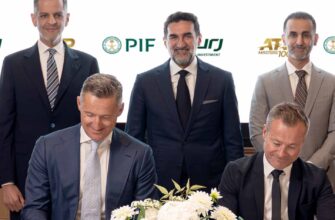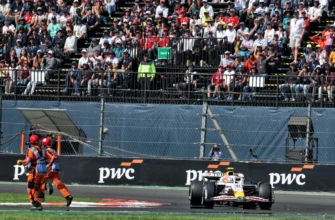Juventus midfielder Adrien Rabiot has ignited a fiery debate following his outspoken criticism of Serie A’s decision to schedule an AC Milan versus Como fixture in Perth, Australia. Rabiot starkly branded the concept as “completely crazy,” questioning the rationale behind compelling Italian clubs to undertake a nearly 14,000-kilometer journey from their home turf for a league match.
His pointed remarks surfaced shortly after UEFA officially endorsed the contentious plan, citing “exceptional circumstances” linked to the 2026 Winter Olympics, which will render Milan’s San Siro stadium unavailable during the scheduled weekend. The match, slated for February 2026, is poised to be the inaugural Serie A game played beyond Italian borders. While UEFA clarified that this endorsement “should not set a precedent,” the initiative has provoked significant opposition from both players and supporters, with Rabiot’s comments standing out as the most direct condemnation to date.
Serie A CEO Delivers Sharp Rebuke
Lega Serie A CEO Lorenzo De Siervo wasted no time in countering Rabiot’s assertions. Speaking from a league assembly at Stadio Olimpico, De Siervo mounted a robust defense of the league’s decision, unequivocally dismissing the midfielder’s grievances.
“Rabiot’s outburst about AC Milan-Como in Australia? He forgets, like all footballers who earn millions of euros, that they’re paid to do something, just play football,” De Siervo declared. “He should have respect for the money he earns and be more accommodating to his employer, AC Milan, who agreed and pushed for this match to be played abroad.”
De Siervo underscored the imperative for top-tier players to grasp the equilibrium between global exposure and their professional obligations. He further added that such an excursion represents a “sacrifice that can be made” by players whose substantial salaries reflect their contributions.
Global Visibility Versus Sporting Integrity
In further justification of Serie A’s strategic move, De Siervo drew parallels with other prominent sporting spectacles. “The Tour de France started in Florence, the Giro d’Italia starts regularly from abroad. This is done to strengthen the product, not weaken it,” he elucidated.
He maintained that the Australian fixture would significantly amplify Italian football’s global appeal, contending that these “exceptional sacrifices” yield considerable long-term advantages. While acknowledging the inherent organizational complexities, De Siervo highlighted that “teams travel business class and are accustomed to such commitments,” portraying it as a challenging yet entirely feasible undertaking.
Player Welfare Concerns and Future Trajectories
Rabiot’s firm stance echoes growing apprehensions among professional footballers concerning fixture congestion and player welfare. In an interview with Le Figaro, Rabiot articulated his perspective: “It’s completely crazy. These are financial agreements to give visibility to the league, things that are beyond us.”
The February 2026 Milan-Como encounter is poised to be a pivotal event for Serie A and a crucial litmus test for its international expansion aspirations. UEFA’s somewhat reluctant approval subtly highlights the delicate balance between commercial ambitions and the preservation of sporting integrity.
Should the Perth venture prove successful, it could well pave the way for an increased number of global Serie A fixtures, especially as other major leagues, such as La Liga, also plan international matches (e.g., Barcelona vs. Villarreal in Miami in December 2025). Nevertheless, with influential players like Rabiot publicly challenging the concept, the league faces the intricate challenge of fostering international growth without alienating its star players or its devoted fan base at home.






